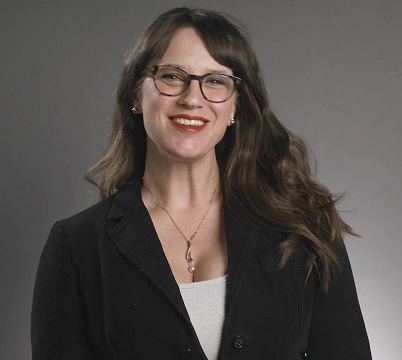Q1) Please tell the readers the main activities and current strategic goals of Lutheran Community Services Northwest (LCSNW)?
A1) All of the district offices of Lutheran Community Services Northwest partner with individuals, families, and communities for health justice and hope. In the Inland Northwest, we’ve zeroed in on trauma recovery.
We have child welfare programming that includes domestic foster care for children of all ages, unaccompanied refugee minor foster care for young people who have been permanently separated from their families of origin due to war, natural disaster, or illness, as well as Wraparound with Intensive Services (WISe) and Family Outreach Crisis Intervention Services (FOCIS).
We also offer free and confidential services to victims of crime and their loved ones through our Victim Advocacy Program. Victim Advocates (both paid and volunteer) answer our 24-hour crisis line (call or text 509-624-7273), and respond to area hospital emergency departments along with our Sexual Assault Nurse Examiner to provide healing, justice and plain old comfort during the forensic exam process.
We also help with both criminal and civil legal matters, school, employment and housing concerns, providing trauma-informed guidance through complicated systems. I’m skipping a lot here, but the beauty of this team is there responsiveness when it comes to new needs.
Finally, we have a large outpatient behavioral health program. The Sexual Assault & Family Trauma (SAFeT) Response Team is a large team of specialized clinicians, peer support specialists, and intake professionals working to address trauma caused by traumatic violence. The majority of our clients in this program are children, and many adults are refugees and immigrants.
Strategically, we’re working hard on improving the integration of our services across programs internally and externally, preventing violence, using technology to meet the needs of our community in new ways, and raising our voices to advocate for the needs of our clients and staff.
Q2) As the Inland Northwest Director of LCSNW, you must use some metrics to track the organization’s progress. Can you share them with us?
A2) There are many! Each service has a different measures of success. Of course, we measure the number of clients served and the number of hours of service clients receive. These are the nuts and bolts, and one indication of whether we’re making an impact. Depending on the type of service, we may be measuring whether we’ve connected with primary care doctors, whether symptoms have decreased, positive impacts in relationships or at work/school, how long a foster youth stayed in a stable placement, or even whether a victim felt believed. We have a spread sheet several pages long our Management Team and Quality Improvement team reviews and discusses monthly. It’s time well spent, and information is shared back to program teams from there. We all want to know whether what we’re doing is working, or whether we need to change course. Our smallest service area is designed to deter youth from behavioral health hospitalization. FOCIS has 1.5 FTEs dedicated to it, and a 100% success rate.
Q3) Among the 200+ indicators on Spokane Trends, which ones are the most relevant to your work here?
A3) Every one of them helps us understand our community. That’s the reason I periodically go through the site to remind myself of the many nuances and social determinants of health that need to be addressed for Spokane to be as successful as possible. That being said, I’m drawn first to the health and public safety indicators. As I mentioned above, we have programming specifically designed to prevent youth hospitalization and suicide. Thoughts of suicide are often preceded by childhood trauma. Seeing Spokane’s disproportionate rate of suicide was heartbreaking and I often reflect on it when setting goals for our organization. Addressing trauma really is a matter of life and death. Of course, reported abuse is also very critical to the work we do at LCS. Since oppression is at the root of trauma, racial equity and equity for people with disabilities, children and women are matters we watch. Additionally, we watch rates of violent crime, particularly sexual assault as we are a Certified Community Sexual Assault Program.
Having worked as an Intake Therapist at LCS for eleven years, I also have strong feelings about access to care. No matter how hard Spokane works, it seems we continue to struggle to reach all of those who need it, when they need it most.
Q4) As a long-time resident of Spokane, are there measures on the Trends that have personal interest? Have you been surprised by the path of any of these indicators over the past 10 years?
A4) I’m a bit of a nerd about this stuff, and find it all pretty interesting. I love my community and I’m proud to have made it home. All of your measures help people like me track our success and vitality.
Q5) You’ve been in non-profit leadership for many years. For decades non-profits have run on appeals that are largely qualitative in nature. Do you see any greater use of data to inform issues addressed by non-profits? Have you experienced organizations other than LCSNW step up their use of data in decision-making?
A5) I honestly believe people want both qualitative and quantitative data. We all have a drive for human connection, and for that reason stories connect us in ways that data never could. However, no one wants to feel as though the money, time or talent they donate to a cause is going to waste. Evidence of our efficacy is probably just as crucial for our supporters as it is for us internally. Communicating them requires balance.

